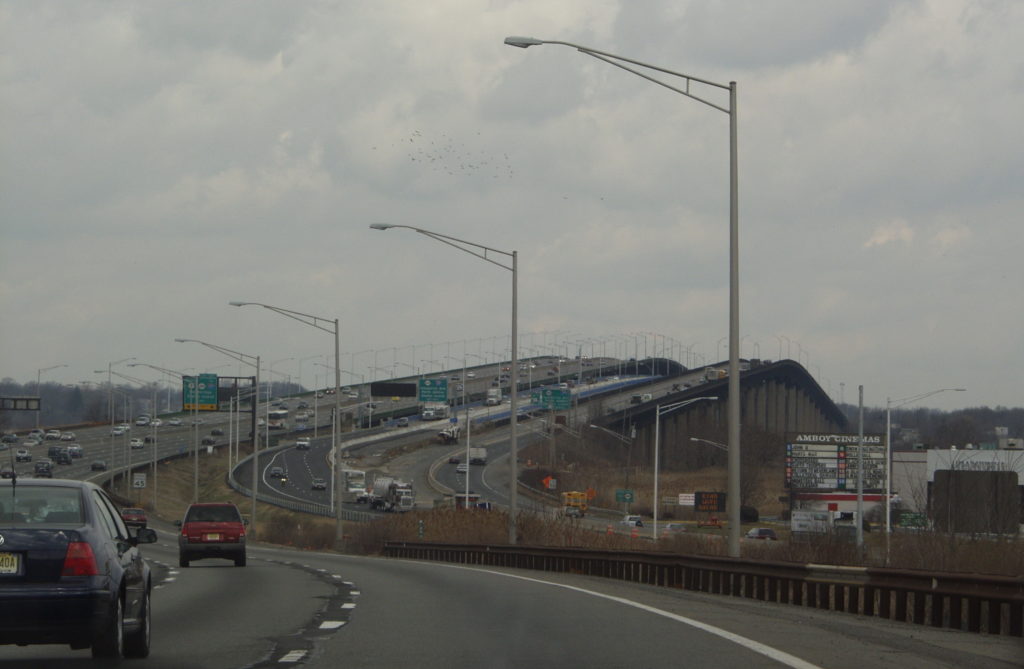Betting on New Jersey’s Future

By Michael Likosky
President Donald Trump campaigned, and ultimately won the White House, on a promise of a resurgence of America’s infrastructure.
The cornerstone of the President’s infrastructure plan is private investment in public works, so-called P3s. It is not, outside of the Port Authority of New York and New Jersey, legal to pursue P3s in the state.
If the State does not pass legislation enabling P3s now, then New Jersey, with all of its infrastructure needs, will leave enormous amounts of federal money on the table. Private money too. As Mr. Trump’s money hits the market, a window of opportunity will open up. It is essential to seize that opportunity.
How does a P3 work? It’s fairly straight forward.
The federal government, private investors, states and cities co-invest alongside one another to design, build, and ultimately operate and maintain a project. If everyone pulls together, then the cost of the project is much less. Rather than paying one-hundred cents on the dollar for a project, states may pay only ten.
Typically, the private investors will front the bulk of the money. Most states simply do not have the money in their bank accounts to pay for much needed infrastructure. However, we all know that infrastructure investment today pays dividends down the road. Today, in many places in the country, everyone is betting on America’s future through infrastructure investment.
Over two-thirds of states have laws enabling P3s. If New Jersey doesn't pass such a law, then federal and private money will simply flow somewhere else. It is doing so today. This is happening not just in transportation, but also with water, broadband, and social projects such as public higher education and civic buildings.
In Pennsylvania, the state used a P3 to fix 432 structurally deficient bridges.
In a state with such high property taxes, forgoing federal money means tax and spend solutions which are simply untenable. Worse too, tremendous sums sit in the accounts of large institutional investors, pensions, insurers, sovereigns and others eager to invest. Forgoing private solutions means again overburdening further resident's property taxes.
Moreover, New Jersey's pensions should invest too. An investment in New Jersey's future is, of course, a winning one.
Worse than foregoing federal and state funds and private dollars and relying instead on New Jersey’s coffers to foot the bill for critical infrastructure is doing nothing. The state’s finances simply preclude paying for all this essential infrastructure. If New Jersey does not do P3s to fix and modernize the state’s infrastructure, it may simply do nothing. The cost could be business retention, job contraction, and a state where a next generation can't make a living.
Importantly, if New Jersey passes P3 legislation, it can become a national leader in P3s with a healthy flow of quality projects being funded. During the financial crisis, the Governor enabled P3s within public higher education. During this window, the state had more higher education P3s than anywhere else, places like Montclair, Jersey City University, and Rowan, Rutgers too.
States throughout the South right now are leaving New Jersey behind. Why? Because they appreciate that infrastructure and inexpensive energy drive advanced manufacturing and other globally competitive economic activity. Cheap water, power and broadband with state of the art logistics attracts business. Other states too, California, Florida and Pennsylvania have come to appreciate this.
The President has made clear that infrastructure projects must be shovel ready to receive federal support. The State has got a long way to go even with P3 legislation. It must mobilize state agencies. It must prioritize and prepare projects. Otherwise, it will be last in line for federal money.
The funding landscape is changing dramatically right now. We see it already in New Jersey with the Gateway Project. The federal government may say that the project will only go forward as a P3.
There's nothing wrong with making a bet on New Jersey's future. Just as with America's future, it's a pretty good bet. The Trump Administration realized this, global investors too. We should as well.
Michael Likosky is the Head of Infrastructure for 32 Advisors





